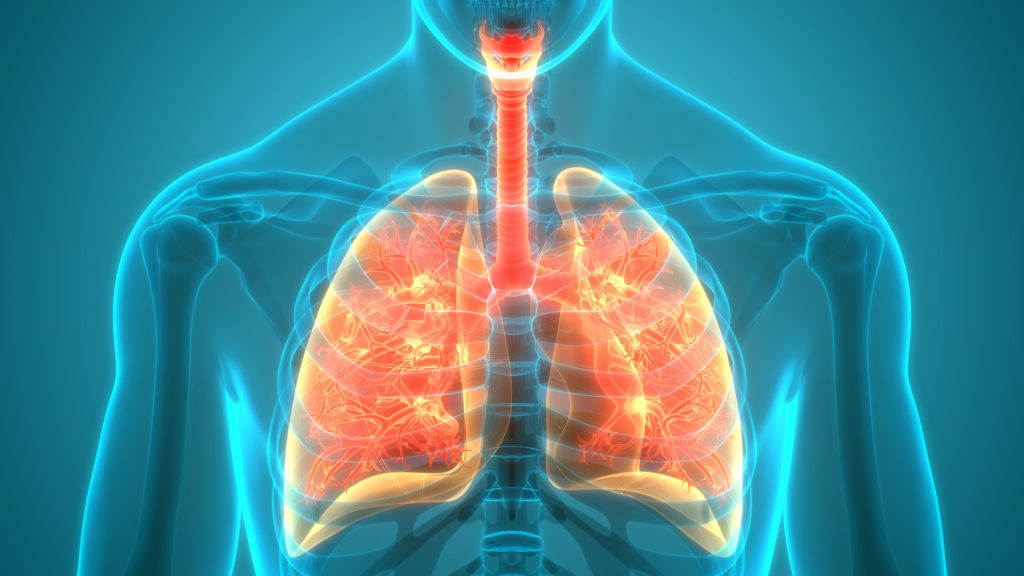April 9, 2021
Coughing is a normal part of life. It’s completely natural to catch a breath of dry air or get excessive mucus stuck in your throat and need to get that gunk out. You cough to relieve your airways of irritants, foreign objects, or discomfort. This may also be a side effect of another medical condition. Just because you need to cough or clear your airflow and respiration, there is no cause for immediate concern.
However, you may find that your nagging cough is lingering and you’re experiencing other symptoms like a sore throat or excess of phlegm. Luckily, most chronic coughs can be cured with antibiotics or getting to the bottom of the underlying cause of your respiratory condition. If you are experiencing more serious issues in your throat or respiratory system, you should consider consulting a doctor. Most of the time, however, you’ll notice your symptom severity subsides with time. Still, it can be beneficial to understand all you can about different kinds of coughs to know what you are ultimately dealing with and what appropriate treatment to undertake.
Coughing every once in a while is perfectly normal.
Before we dive into the topic, now is a good time to reiterate that coughing every once in a while is a completely normal function of daily life. For people who start to freak out or have a panic attack at any sign of illness, don’t let this topic scare you. Chances are you have a cold or, at most, a viral infection. The good news is your cough reflex is mostly a harmless instinct to clear your airway. Don’t let yourself get paranoid and start to think you have lung cancer, COVID-19, or a serious disease when that is most likely not the case.
How Your Lungs Work
 Your lungs and respiratory system work hard to keep your body healthy and safe from specific triggers. Not only are your lungs responsible for bringing oxygen into your bloodstream and pumping carbon dioxide out, but they also act as a filter for all the bad germs and foreign particles trying to get into your body through your nasal passage, larynx, or mouth. If an allergen, foreign object, or unwanted article enters your respiratory tract, your lungs and throat will work to dispel that item. This results in the natural reflex of coughing. So, really when you cough, you should be thanking your body and the mucus in your lungs for naturally protecting your immune system.
Your lungs and respiratory system work hard to keep your body healthy and safe from specific triggers. Not only are your lungs responsible for bringing oxygen into your bloodstream and pumping carbon dioxide out, but they also act as a filter for all the bad germs and foreign particles trying to get into your body through your nasal passage, larynx, or mouth. If an allergen, foreign object, or unwanted article enters your respiratory tract, your lungs and throat will work to dispel that item. This results in the natural reflex of coughing. So, really when you cough, you should be thanking your body and the mucus in your lungs for naturally protecting your immune system.
Reasons for Coughing
While it’s clear that everyday coughs are natural, there are some triggers why you may experience chronic coughing, trouble breathing, or chest pain.
Dr. Robert Maul, a family medicine doctor with Healthcare Associates of Texas in Heath says, “We have a lot of people come in with a cough that’s not exactly related to allergies. I always ask the patient if they were raised in a house where either one or both of the parents smoked–if they did that’s a serious situation. Also, we look at the type of jobs these patients have. Are they around volatile chemicals? Are they around flying dust particles, like people who work with sheet rock and asbestos? We try to eliminate allergies being the cause. If it’s not their allergies, we have to look at all these different reasons to see if it could be any one of these causes.”
Dealing with persistent coughs or wheezes can impact your quality of life, so it’s helpful to get a grip on the proper diagnosis. Let’s take a look at some of the main causes of coughs.
Clearing Your Throat
As established above, clearing your throat of unwanted particles is the most prevalent reason for the cause of the cough. This is the best way for your body to do its job and keep bad bacteria and germs out of your vocal passages. This is one of the healthy controls to clear out your upper airways and benefit your respiratory condition.
Viruses or Bacteria
A chronic cough may be a symptom of a viral infection or bacterial infection. A respiratory tract infection like a common cold or the flu can cause serious problems for your lungs, lower airways, and sinuses. It is natural to experience a tickle or itch in your throat, a runny nose, congestion, or cough response as your immune system fights off these infections. Antibiotics or cough suppressants can usually show significant improvements.
Asthma
 Asthma is a condition where inflammation closes off your trachea or air pathways and makes it harder to breathe naturally without an inhaler. This is often coupled with breathlessness and wheezing when trying to take deep breaths, so it is easy for a healthcare provider to identify if a patient has variant asthma or airway inflammation. This is usually a reason why young children have a chronic cough. A prevalent child’s cough may require specific therapy for asthma treatment in the pediatric population.
Asthma is a condition where inflammation closes off your trachea or air pathways and makes it harder to breathe naturally without an inhaler. This is often coupled with breathlessness and wheezing when trying to take deep breaths, so it is easy for a healthcare provider to identify if a patient has variant asthma or airway inflammation. This is usually a reason why young children have a chronic cough. A prevalent child’s cough may require specific therapy for asthma treatment in the pediatric population.
Allergies
A different season or time of year can exacerbate common complaints for individuals. If you have a history of allergies, you may experience a cough reflex because of pollen, environmental exposure, or other allergens in the air. Seasonal allergies can trigger problems within your breathing tubes and increase your cough reflex sensitivity. Antihistamines can help with disease control.
Smoking
Inhaling tobacco smoke is not healthy for your lungs. If you are a daily smoker, you’ll develop a habit cough with a distinctive sound that is referred to as the smoker’s cough. Quitting is the best way to relieve your aspiration, stop filling your lungs with cigarette smoke, and work on the management of chronic cough. After all, smoker and nonsmoker habits make a major difference in your prolonged cough.
COPD
Chronic Obstructive Pulmonary Disease, also known as COPD, can also be a cause of chronic cough. This is a lung disease that involves emphysema and chronic bronchitis. COPD is caused by obstructions within the blood vessels in the lungs which can cause chest tightness, shortness of breath, or coughing up colored sputum or mucus. This is often a lung disease that smokers will develop. Consult a pulmonologist or specialist to take simple steps to relieve the painful sensations of COPD, depending on your case series.
Respiratory Infections
Viruses can cause serious lower or upper respiratory infections which are a common cause of coughs. Pneumonia, influenza (flu), laryngitis, whooping cough, bronchitis, or even tuberculosis can affect your respiratory system and lead to lung infections. Viral coughs are a common symptom and will usually remedy with time.
Postnasal Drip
Postnasal drip is a condition that most adults will experience for the first time early on in life. If you are getting over a respiratory infection or dealing with allergies, your body may start to increase mucus secretion in your receptors. This sputum will accumulate in the back of the throat. This will cause your cough receptors to go off and you to feel like you constantly have to clear your throat and take precautions. Bedtime can make the symptoms of postnasal drip even worse.
Acid Reflux
Gastroesophageal Reflux Disease (GERD), also known as acid reflux, can cause a chronic cough. When stomach acids or gastroesophageal reflux make their way back into your esophagus or vocal cords, you may experience heartburn, chest pain, or a bigger problem with coughing.
Types of Coughs
 Coughing is a common reason for many different diseases or situations. Therefore, your type of cough can help your primary care clinician identify what is causing it. You can describe your kind of cough based on the time of day they occur, characteristics, duration or intervals, affect on other aspects of your health, and how bad it has gotten. Get the best results on a prognosis by monitoring more than that only symptom.
Coughing is a common reason for many different diseases or situations. Therefore, your type of cough can help your primary care clinician identify what is causing it. You can describe your kind of cough based on the time of day they occur, characteristics, duration or intervals, affect on other aspects of your health, and how bad it has gotten. Get the best results on a prognosis by monitoring more than that only symptom.
Wet Cough
A wet cough is also known as a productive cough. This is the type of cough where you end up getting rid of mucus in your throat. It’s often a symptom of the cold, influenza, pneumonia, humidity, or COPD. In this scenario, you may feel like you have extra moisture stuck in the back of your throat triggering a constant cough.
“I tell patients to look at the phlegm that they’re bringing up. I know that’s a little gross for some people but as long as the phlegm is light yellow, very light to beige color, or white, those are natural colors for phlegm. If they’re dark green, dark brown, or yellow, those are all cases of bacterial infection,” says Dr. Maul.
If the sputum production or mucus you cough up includes blood or is a weird color, seek medical attention for the treatment of chronic cough.
Dry Cough
The other end of the humidity spectrum is the dry cough. This can be a cough response to cold air, cold weather, a dry windpipe, or upper respiratory infections. These dehydration coughs can be more painful and hacking in nature because it’s a nonproductive cough that has less moisture. They’re also harder to get rid of, as they usually accompany laryngitis, tonsillitis, a sore throat, or allergies. A lingering cough of this nature or hoarse voice may be cause to consult a doctor.
Paroxysmal Coughs
Paroxysmal coughs are more disruptive than an occasional cough. This type of cough triggers violent attacks of coughing fits that can be a common cause of pain in your diaphragm, abdomen, or stomach or even cause a headache. Whooping cough (also known as pertussis) is an example of this kind of chronic cough. Muscle aches and nausea may accompany paroxysmal coughs.
Acute Coughs
The basic nagging cough you don’t need to worry about is called an acute cough. They won’t stick around for a long time, don’t require medication, and usually disappear after a few weeks. A lot of people will experience these cough symptoms, but they should clear up on their own without medical treatment.
Symptoms of Chronic Coughs
While coughing is usually the common symptom of many other disorders, you may experience some symptoms or complications caused by your chronic coughs. Chronic cough patients may experience the following present side effects.
Annoyance
While this isn’t a medical concern, it can be quite annoying to be constantly coughing. Always coughing or doing throat-clearing behaviors can be a distraction to the people around you. It can also turn people off from you, because they think you may be contagious. A chronic dry cough can irritate your throat and cause pain, even when you have no other symptoms. While it’s not necessarily a serious condition, different types of coughs can be a real pain to deal with. Treatment of chronic cough can get you back to a higher quality of life.
Difficulty Breathing
If you are prone to coughing fits, they may leave you with feelings of breathlessness. Swelling in your thorax or lungs can cause respiratory issues and inflammation. An unexplained cough may make it harder for you to breathe or need specific therapy to engage in regular activities.
Trouble Sleeping
When you’re laying down to sleep at night and trying deep breathing exercises, the exertion of a pesky neurogenic cough can ruin bedtime. Nothing halts relaxation like hacking coughs or spasms. Constant respiratory issues and poor indoor air quality can cause fatigue, exhaustion, or insomnia if left untreated.
Other Respiratory Symptoms
Chronic cough can affect the rest of your respiratory system because the systems are so interconnected. Just like a stuffy nose can lead to post-nasal drip or neurogenic inflammation leads to neuropathic pain, a chronic cough can lead to lung disease, hoarseness in your throat, or high fever. Your airway nerves can also be affected by untreated chronic coughs.
When to Seek Medical Attention
Most first-time coughs can be left without medication and will clear up on their own. However, if you’re experiencing other severe symptoms, it may be a good idea to get an official prognosis or.some cough medicine.
“A cough is serious enough for a doctor’s visit when it has lasted for a prolonged time, for example more than a couple of weeks,” says Dr. Maul.
Fever, chest pain, fatigue, coughing blood, confusion, or dizziness may be a sign that something more serious is going on that may not be able to be treated by simple behavior modification. Visit a healthcare provider if this is the case.
Treatments
If you find yourself dealing with a persistent cough, your first step is to seek a treatment plan. Most treatment options are available as over-the-counter cough medicines to combat your main symptoms.
At-Home Remedies
If your neurogenic cough is caused by a viral illness or untreatable situation, you can work to soothe your pain or get rid of environmental irritants. Drink plenty of fluids and keep cough drops close. You may also want to prop up your head as you sleep. This will prevent acid reflux complications. Gargling with warm salt water can be the best thing to clear out your throat and sinuses, or you can try drinking hot tea with a spoonful of honey. Avoid smoking and try to add moisture to the air with a humidifier or other methods. These are all cures for your cough symptoms and protocols to follow if a chronic cough persists.
Medicine
Coughs caused by bacterial infections can be treated with antibiotics or cold medicines. Just remember to keep taking them until the dose runs out, even if you start to notice significant improvements. To get a prescription you will most likely have to undergo an exam from your healthcare provider. If a simple throat swap, spirometry, or sinus test doesn’t suffice, the best way to find the issue may be a chest X-ray or blood test. Once they find a treatable cause of chronic cough, you can take home antibiotics or an over-the-counter cough suppressant that can offer you relief from your coughing spell.
Treating Underlying Problems
If your cough is the main symptom of another issue, it can help to treat that situation. If you’re asthmatic, be sure you have an inhaler with you. If you have a hypersensitivity to allergens or changing air quality, take allergy meds to fight those possible causes of coughing in the first place. Or if you struggle with acid reflux or heartburn, find ways to handle those stomach problems first thing.
Give It Time
With most cough centers, the best course of action is to just give it time. Even a persistent cough or common condition will go away with behavior modification. Sometimes the best treatment is to soothe your pain or discomfort, rather than seeking medical care.
DISCLAIMER
The information featured in this site is general in nature. The site provides health information designed to complement your personal health management. It does not provide medical advice or health services and is not meant to replace professional advice or imply coverage of specific clinical services or products. The inclusion of links to other web sites does not imply any endorsement of the material on such websites.